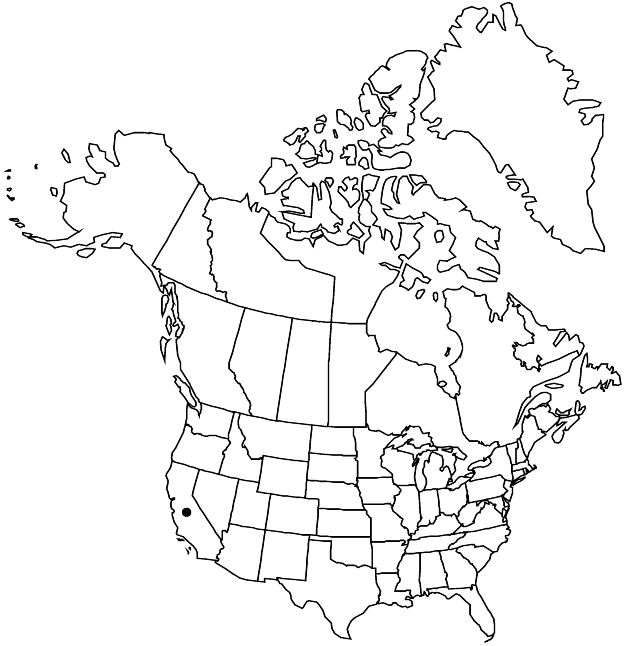Chorizanthe polygonoides
Proc. Amer. Acad. Arts 8: 197. 1870.
Plants prostrate, 0.1–0.5 × 0.3–2(–2.5) dm, villous. Leaves basal; petiole 0.5–1 cm; blade oblanceolate to elliptic, 0.3–1 × 0.2–0.3 cm, thinly pubescent. Inflorescences with involucres in small clusters 0.5–1 cm across even at dichotomies, greenish or reddish; bracts 2, petiolate or sessile, similar to proximal leaf blades, oblanceolate or narrowly elliptic to linear-lanceolate, 0.3–1 cm × 1–3 mm, awns absent. Involucres 1, greenish or reddish, campanulate, 5–6-ribbed, 1.5–2.5 mm, corrugate, thinly pubescent; teeth 5–6, unequal, 3 longer ones 1.5–3 mm, these alternating with 2 or 3 shorter ones 1–2 mm, anterior tooth not leaflike; awns of prominent teeth uncinate and 1.5–3 mm, those of shorter teeth straight and 1–2 mm. Flowers 1, included to slightly exserted; perianth white to rose, cylindric, 1.5–1.8(–2) mm, densely pubescent abaxially; tepals connate 2/3 their length, monomorphic, oblong, obtuse to truncate or minutely emarginate apically; stamens (6) 9, slightly exserted; filaments distinct, 0.8–1 mm, glabrous; anthers reddish, ovate, 0.2–0.3 mm. Achenes dark brown to black, 3-gonous, 2–2.5 mm.
Distribution

Calif., nw Mexico.
Discussion
Varieties 2 (2 in the flora).
Selected References
None.
Key
| 1 | Involucres 2-2.5 mm; awns of prominent involucral teeth 1.5-2 mm | Chorizanthe polygonoides var. polygonoides |
| 1 | Involucres 1.5-2 mm; awns of prominent involucral teeth 2-3 mm | Chorizanthe polygonoides var. longispina |